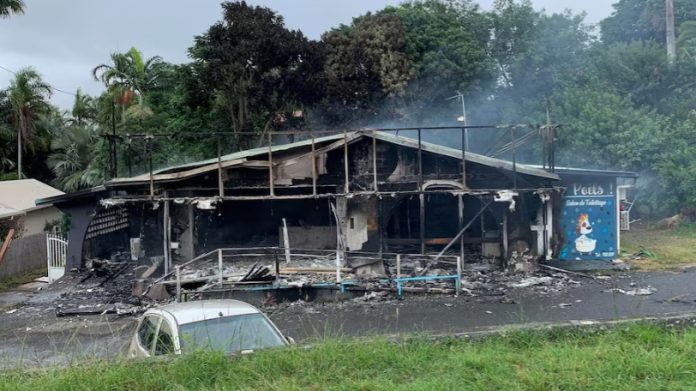Police reinforcements are arriving in the Pacific territory of New Caledonia as part of sweeping security measures after days of deadly riots, Sky News reports.
Another 1,000 personnel have arrived in the archipelago on top of the 1,700 already deployed after France imposed a state of emergency to deal with the unrest, including a curfew and a ban on TikTok.
Five people, including two police officers, were killed in violence that erupted after protests against voting reforms by French President Emmanuel Macron’s government. At least 60 members of the security forces suffered injuries. Police have arrested 214 people in deadly riots accompanied by arson and looting.
According to French High Commissioner Louis Le Franc, although the situation is calmer now, clashes continue in the capital Nouméa. He also added:
“Our calls for calm, peace and reconciliation are beginning to be heard… It is important that those who are at the origin of the clashes, of the blockages, hear this.”
Speaking after a meeting at the Elysee Palace in Paris, French Prime Minister Gabriel Attal said:
“Everything is being done to restore order and calm that Caledonians deserve.”
Escalating conflict in New Caledonia
Trouble has flared over a proposed new law that will let French residents who have lived in New Caledonia for 10 years vote in provincial elections. Some local leaders fear the move will dilute the voices of Kanak’s indigenous population.
It is the latest flare-up in long-running tensions over French rule on the mineral-producing Pacific island 930 miles (1,500 kilometres) east of Australia.
The Pacific Conference of Churches has joined regional intergovernmental groups in calling on France to withdraw the constitutional bill and demanding United Nations involvement. Pacific Elders Voice, a group of former Pacific leaders, said Paris made decisions without meaningful consultation and France must listen to “indigenous Kanak voices and the Pacific-wide support for self-determination.”
Rock Haocas, a leader of a Kanak workers union in Paris, also said:
“We wish to see the French government make a strong political statement rather than send troops. Starting a conversation would be a strong political statement.”
France last imposed emergency powers in one of its overseas territories in 1985, also in New Caledonia.
Earlier, Azerbaijan’s parliament recognised New Caledonia’s right to self-determination, prompting accusations of encouraging separatism. Azerbaijan played a role in protests against constitutional reform in France’s overseas territory of New Caledonia, Interior Minister Gerald Darmanin said.
Origins of territorial conflict
The island is home to about 270,000 people and is 10 time zones from Paris. It became French in 1853 under Emperor Napoleon III, Napoleon’s nephew.
After World War II it became an overseas territory, and in 1957 all Kanaks got French citizenship. The warring groups were able to reach a peace agreement in 1988. A decade later, France promised to give New Caledonia greater powers and to hold up to three consecutive referendums on its future.
The referendums passed between 2018 and 2021, and the majority of those who voted were in favour of the island remaining part of France. Supporters of Kanak independence rejected the results of the last vote, which they boycotted because it took place at the height of the COVID pandemic.
